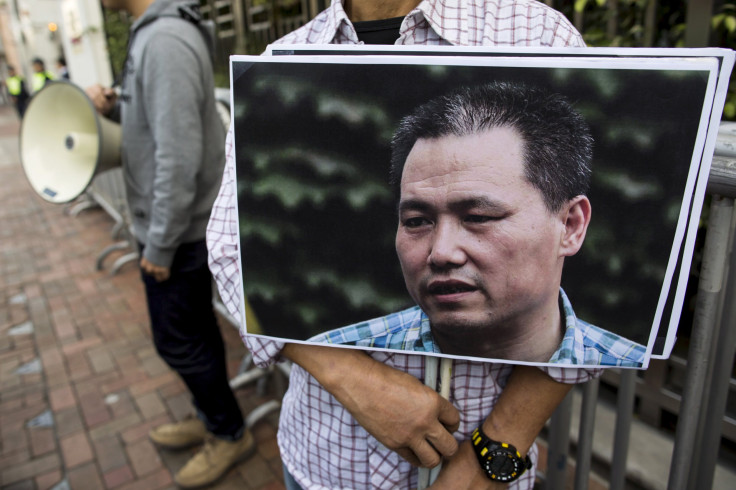UK Should Rethink China Policy Over Human Rights Crackdown, Conservative MPs To Say

The United Kingdom should reconsider its friendship with China in light of the human rights crisis under President Xi Jinping, U.K.’s Conservative Party’s Human Rights Commission will say this week.
The commission is set to launch a report entitled “The Darkest Moment: The Crackdown on Human Rights in China 2013-2016 ” on Tuesday, reportedly detailing China’s deteriorating human rights record since 2013, and asking the U.K. government to reconsider its China policy based on the report’s findings.
The report details China’s treatment of human rights lawyers, its alleged use of torture, the alleged detention of Hong Kong booksellers, issues on freedom of expression, the situation in Tibet and Hong Kong and the use of reportedly forced televised confessions.
Chairperson of the Conservative Party’s Human Right Commission Fiona Bruce said in a statement, “Without exception, every submission to our inquiry detailed a severe deterioration in human rights in China since 2013 and revealed a situation which is the worst China has seen for many years, possibly since the Tiananmen Square massacre of 1989.”
Bruce said that witnesses called the many recent developments “unprecedented,” adding, “We believe it is time for the U.K. Government to rethink its approach to China, to speak out publicly and consistently on human rights, and consider ways it can more effectively promote and protect basic rights that are being gravely violated in mainland China and in Hong Kong.”
Media reports say that leader of the Umbrella Movement in Hong Kong Joshua Wong, winner of Miss World Canada Anastasia Lin, who was banned from China for her human rights work, and the blind human rights activist, Chen Guangcheng, contributed to the report.
The report will be launched by Conservative peer Lord Chris Patten, the ex-governor of Hong Kong. “This is a comprehensive and well researched analysis of China’s increasingly deplorable human rights record. I am obviously concerned about what has been happening in Hong Kong. The British Government must take account of this first-class piece of work,” he told the Hong Kong Free Press.
U.K.’s Prime Minister David Cameron and Chancellor of the Exchequer George Osborne were the architects of a master plan to improve economic ties with China and establish what Downing Street and the Communist Party call the “golden ties.”
Osborne reportedly visited Xinjiang, one of China’s most politically charged regions, last September in an attempt to cement the new relationship. President Jinping praised Britain’s “visionary and strategic choice” to become Beijing’s greatest friend in the West during a state visit to Britain in October.
U.K.’s attempts to woo Beijing have annoyed human rights activists, who have cited a period of reportedly severe political repression in China.
“China is not what it was five years ago,” China expert Christopher Hancock told the Guardian, “It has undergone a 180-degree turn in its political ethos. Outsiders should not attempt - and will always fail - to change China’s political and social behavior. However, British citizens can, and must, attempt to change their government’s hitherto misguided response to it.”
© Copyright IBTimes 2024. All rights reserved.






















